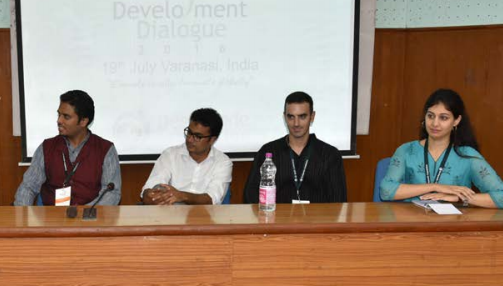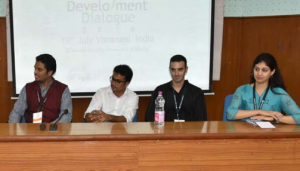Building Social Enterprises: the Nuances That Make Them Tick

Launching a new business can be highly demanding and intricate, from the multiple stages of ideation to creating sustainable execution models. What enables a social enterprise to infuse sustainability to its business model during the initial crucial years? How do social entrepreneurs start off to succeed, and what are the key enablers of success?
A social enterprise is essentially a community organization that is highly people-oriented, given the nature of the impact that it seeks to make in people’s lives. To create true value, a service or product offering from an enterprise should bridge a critical gap in the lives of the communities that it seeks to serve.
One way to intervene with your target population in a relevant fashion is to ensure that you understand the beneficiary communities and their challenges, and on some levels collaborate with them before designing your product or services offerings. As Aditi Chokshi, Founder of social enterprise Potli put it, “To work at the grassroots, we must be familiar with the people we want to help and build tools for them. We must first befriend, and understand the consumers before trying to make solutions that can help them.”
Once a m arketable product is ready, enterprises need to brainstorm and strategize around varied aspects that may lead to refining business goals. A crucial support can come from able mentors, who may be successful entrepreneurs who have proved their mettle, or thought leaders with the experience of working with the relevant sectors. According to Abhinandan Kavale, Program Associate, Deshpande Foundation, “It is crucial for entrepreneurs to have the right mentor who can guide you at the start of your venture and throughout the journey. Technology can guide you but it cannot replace the guidance offered by a mentor who speaks from his rich experience.”
arketable product is ready, enterprises need to brainstorm and strategize around varied aspects that may lead to refining business goals. A crucial support can come from able mentors, who may be successful entrepreneurs who have proved their mettle, or thought leaders with the experience of working with the relevant sectors. According to Abhinandan Kavale, Program Associate, Deshpande Foundation, “It is crucial for entrepreneurs to have the right mentor who can guide you at the start of your venture and throughout the journey. Technology can guide you but it cannot replace the guidance offered by a mentor who speaks from his rich experience.”
Startups should continually self-evaluate to understand the value that they can deliver their customers, and seek out to assess their market fit to become replicable and scalable models. Speaking at the Development Dialogue at the Ek Soch Sandbox, Mani Vajipey, CEO, Banyan Nation said, “Every business has to have a value proposition. The day a startup realizes what its customer wants – and what value proposition it can offer – that day, it becomes a repeatable scalable model. Once you identify your value proposition, you can successfully do the same business in many cities, markets and be profitable.”
In the session called ‘Next Gen Entrepreneurs’ during the Development Dialogue, the audience sought and received inputs on the many nuances of running a business, such as the process of registration, hiring the right team and the importance of having a mentor.
